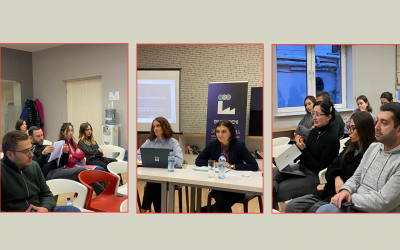Wage theft is one of the most prevalent labor rights violations in Georgia today, yet it remains mostly ignored in debates about labor policy. Indeed, the term “wage theft” (მოპარული ხელფასი – literally “stolen salary”) has only entered the public lexicon recently and is still not commonly used.
Wage theft is defined as an employer’s failure to pay any money legally owed to an employee. It covers a wide range of infractions, including unpaid overtime work, illegal deduction of wages, unpaid tips, non-payment of paid vacation and more. All of these are illegal under Georgian law.
Wage theft can be viewed as essentially the “economic dimension” of labor rights violations, and it therefore serves as an indicator of how common other labor rights violations might be.
Despite much anecdotal information regarding various forms of wage theft in Georgia, detailed studies have not been carried out to assess the problem’s true scale. This report is an attempt to begin filling that gap.
Unfortunately, our research shows that wage theft is essentially normalized in Georgia today. It is so normal, in fact, that most forms of wage theft are not even perceived as crimes – and they are certainly not viewed with the same disdain as other economic crimes, such as property theft.
This report reviews the most prevalent forms of wage theft in Georgia, with reference to specific practices in different sectors. It also assesses Georgia’s labor legislation with regard to wage theft and outlines the main state mechanisms and agencies that have the mandate and/or relevant tools to combat wage theft.
In addition, the report presents the key findings of the Fair Labor Platform’s Wage Theft Calculator, an online tool that helps workers determine if they have experienced wage theft.
At the end of the report, we present our conclusions and recommendations. These take into consideration the data from our Wage Theft Calculator and best practices from other countries and outline a strategic vision to combat the wage theft pandemic in Georgia, with the aim of creating a policy framework that enables employees to take home every lari they earn.



